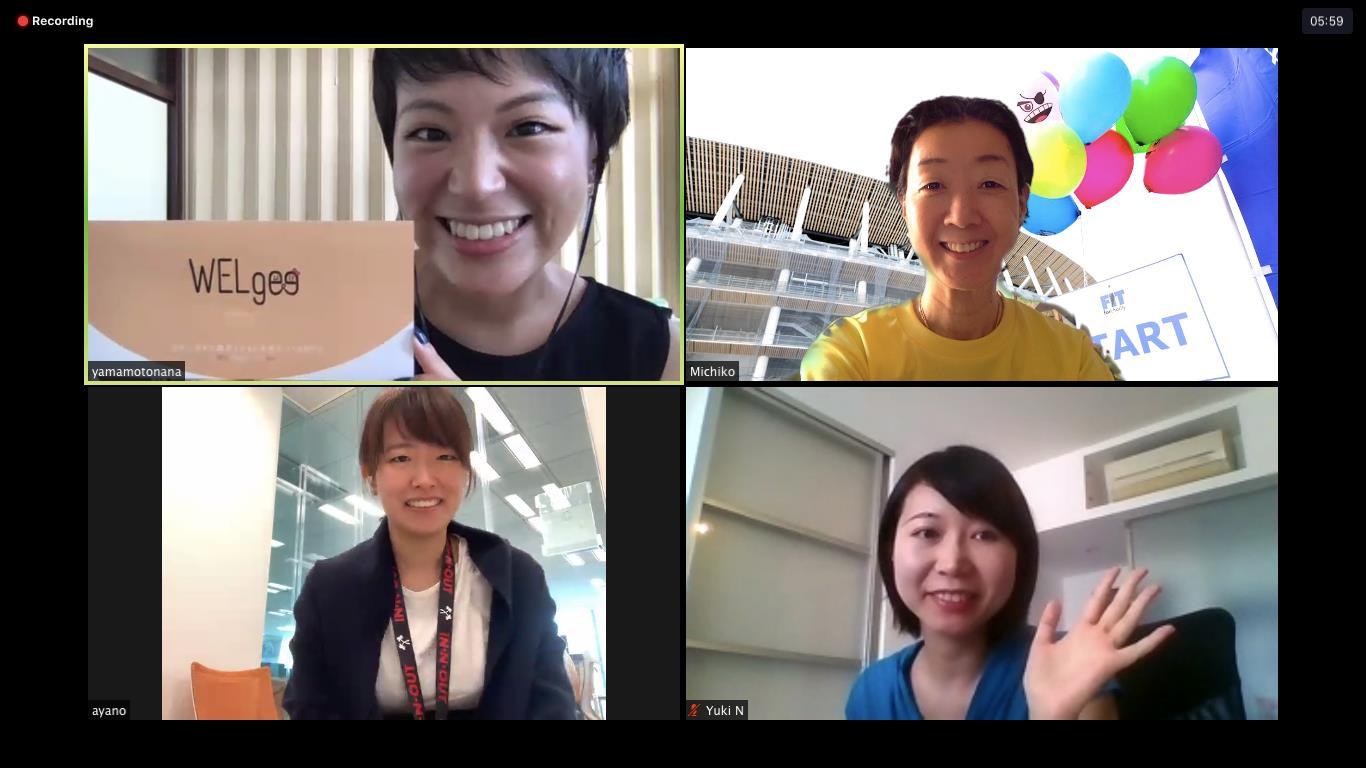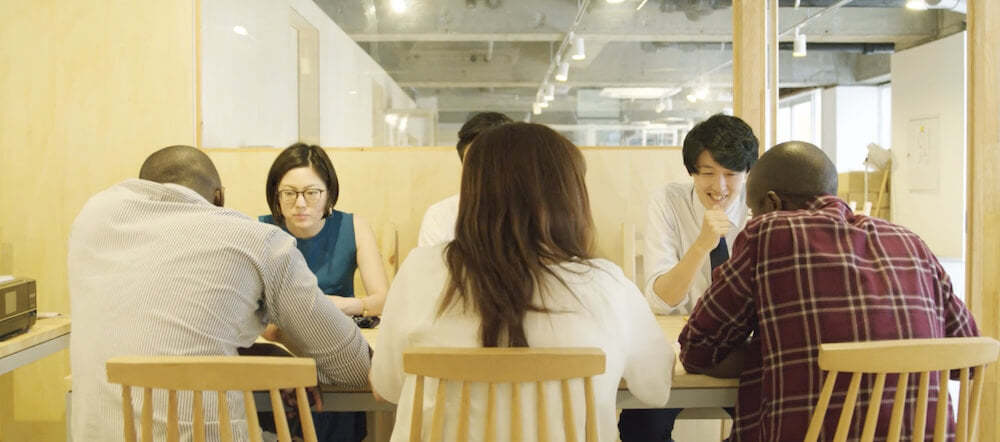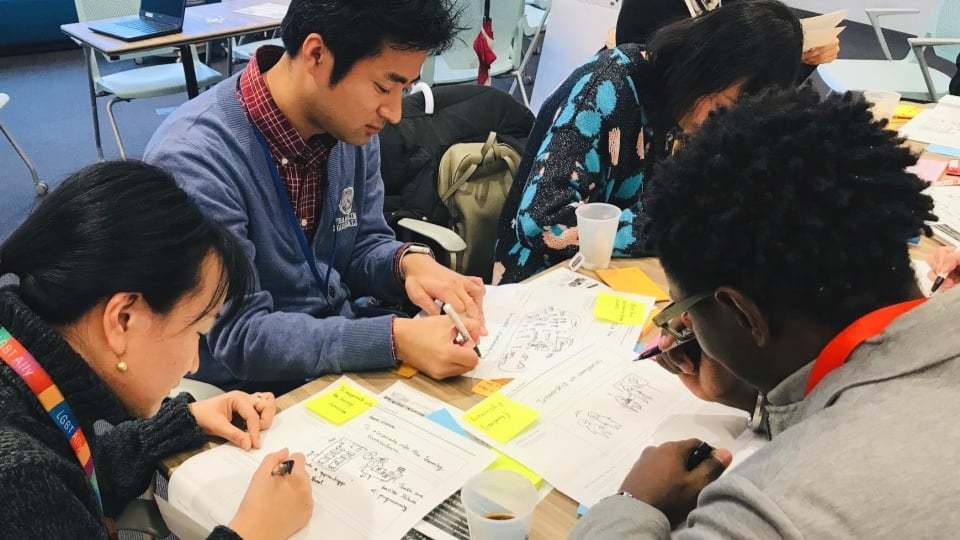NPO WELgee
WELgee, one of our FIT 2019 beneficiary organisations, aims for social participation and empowerment of refugee applicants in Japan. We interviewed Nana Yamamoto, Career Program Manager.

FIT: Could you tell us about your background and how you got involved in the charity?
Yamamoto: I spent my childhood in the U.S. and Germany, and studied abroad in Vancouver as a student. I wanted to learn more about diversity in Japanese society as my overseas experience gave me the opportunity to learn and work with various backgrounds. Through an event hosted by WELgee, I learned about the refugees arriving in Japan. While living abroad, I experienced unreasonable and difficult situations, being a woman and of Asian descent, hence I resonated to the refugee's feelings. Such motivation made me believe that I can contribute by accessing the system and network on behalf of the refugees, who often feel isolated, and help create a society where they too can take part in an active role in Japan.
FIT: What do you hear from refugees in Japan?
Yamamoto: There are over 2.9 million foreigners living in Japan. However, when you walk around the streets of Berlin and Paris which have a lot of foreigners, the response is totally different. It's an extreme example, but when a foreigner sits next to someone on a train in Japan, quite a few of them move out of their seat. Many Japanese feel uncomfortable with a person of different skin color next to them. Similarly in a workplace, it is still uncommon for Japanese companies to hire and work with people from Africa. Along with such high psychological barriers, there is also the language barrier. You rarely find work exclusively in English, for example, unless you are an experienced engineer,
FIT: What about the legal system?
Yamamoto: In the case of Japan, the government's legal approval of refugee status is very strict. In 2019, there were 10,375 applicants and only 44 received refugee status. The only hope for refugees fleeing to Japan is to overcome this strict system.
Over 90% of the refugees we are involved with, must continue to renew their residency status (Visa) every 6 months while awaiting years for the results of this lengthy asylum application. In Germany and France, the number of people recognized as refugees by the government is far more compared to Japan and the government also guarantees the minimum standard of living. Private non profit organisations offer an environment where refugees can live more actively, offering programs that enable people to improve their standard of living, such as training them as engineers.
FIT: What do you find rewarding working for WELgee?
Yamamoto: I remember vividly a case of a refugee applicant, a former entrepreneur from Africa who started working to connect Africa and Japan with a major Japanese motorcycle manufacturer. I met him 2 years ago, while he was in a shelter provided by another charity. Through the "JobCopass", a job matching service run by WELgee's Career Program Division, we met the manager of a major Japanese motorcycle manufacturer, with plans to expand in the African market. The competition in the African market is so fierce, the company knew they would not be able to compete on their own and wanted to hire someone who knew the African market. We introduced him to the company and his knowledge and experience matched the company’s needs, and led to the recruitment. What’s grateful is that he is still keeping in touch with us, and is providing his own experiences to others who are looking for career opportunities in Japan. I personally find it rewarding to support and see these people from diverse countries from the Middle East and Africa, who would not have met, if not to have come to Japan to seek asylum, helping each other to fulfill their goal.
FIT: What is your future direction as a group?
Yamamoto: We cannot avoid the effect of Covid-19. It has resulted in an economic downturn, and refugees and other socially vulnerable people were the first to lose their jobs. Even if they managed to keep their jobs, the contract can be easily cancelled. You can connect them to other part-time jobs, but there is no guarantee that they will weather the next economic downturn. It is necessary to build a stable path that enables them to work and withstand this changing environment.
Through advocacy, we also need to change the current society and legal systems. Under the declaration of a state of emergency, applicants for refugee status who have a resident card in Japan were also able to receive the special benefit. The treatment of foreign residents, including refugees, is steadily improving. We will continue to advocate not only the government but also private sectors and business communities to create new measures so that young people with the skills, experience and aspirations that have escaped to Japan as refugees, can live and work actively in Japan.
WELgee
https://www.welgee.jp



